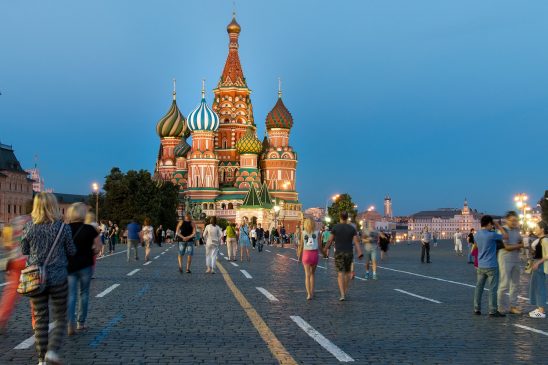Russian Private Crypto Users May Face 15 Years in Prison for Avoiding Registration
March 7, 2019 by Jeff Fawkes
Anatoly Aksakov, head of the Russian Gosduma’s financial markets committee, has declared he wants all crypto users to pass KYC/AML in order to fight money laundering in the field. He also notes that Russian citizens will have to obtain a special “visa” document in order to have the right to buy, sell and transfer ”Digital Financial Assets” in exchange for fiat money.
Also read: Coinbase to Remove Neutrino Employees Who Worked for Hacking Team
We love hearing from our readers. Sound off on our Twitter or Facebook pages
Check out our insights & interviews with influential insiders on the Bitsonline YouTube channel
And for the only source of UNFILTERED trading volume, head to CoinBillboard
All Crypto Assets Will Be Checked Before Running in Russia
All cryptocurrencies will have to pass special tests in order to obtain the right to circulate in the country. This includes both foreign and local cryptocurrencies (presumably including exotics like Kolions). If there’s no approval, the token may be banned Russia-wide with banks helping to spot private traders who continue to operate anonymously. If ordinary users, coin authors or private traders with significant volume refuse to pass the check, they may also face up to 15 years in prison – no matter how exactly they obtained or used any virtual currencies.
Aksakov expressed hope the ”digital financial assets” bill amendment will pass the second reading in the Gosduma (state assembly) in the nearest future, so the country can start using such assets for overcoming U.S. sanctions.
Interesting fact: despite the draft bill of the corresponding law still lacking the word “cryptocurrency”, local banks and regulators say “yay” while looking at the initiative. The current bill demonstrates a lack of understanding of the core principles of financial cryptography.

Corporations Show Optimism Despite Russian Internet Censorship
A number of large corporations already showed support for Aksakov regarding the new initiative. They state that legalization of tokens will bring mass adoption in Russia, but such words sound like a sweet lie in light of a dark perspective of the total Internet shutdown in Russia. The issue is that government want to block a number of services like Google, YouTube, Facebook, etc., together with castrating a large number of Russia-based websites and services. In such a conditions, free token economy statements look pathetic and unbelievable.
Aksakov is somehow sure that house-to-house check will help with fighting money laundering. Which part of the government will handle all this is still unknown. We may assume that will be Rosfinmonitoring, but the stance of things can change any second.
ShapeShift Example Taught Us Nothing?
Banks are well-known money launderers, which was recently shown by ShapeShift CEO Eric Voorhees. After receiving accusations in the form of a Wall Street Journal piece regarding $80 million USD being “laundered” through his and some other similar crypto exchanges during 2017-2018 (without actual proof) he did fire back with the fact that “suspicious transactions” on his service were all legal.
Danske Bank had “laundered” $230 billion for Russian criminals over the same time period, provoking a scandal and making Eric’s service effectively 25 thousand times “safer” to use that this particular bank.
Considering that $230 billion was moving from Russia to Europe, Aksakov should turn his Sauron eye to look the other way around, or he may fail to distinguish the real criminals from law-abiding cryptographers, gamers, web-designers and journalists who use crypto tokens to avoid unnecessary fees and slowpoke-style bank transactions.
Why can’t Russian lawmakers (and others) concentrate on real criminals instead of fighting with shadows? Let us know in the comments.
Images via Wikimedia Commons, Pixabay




